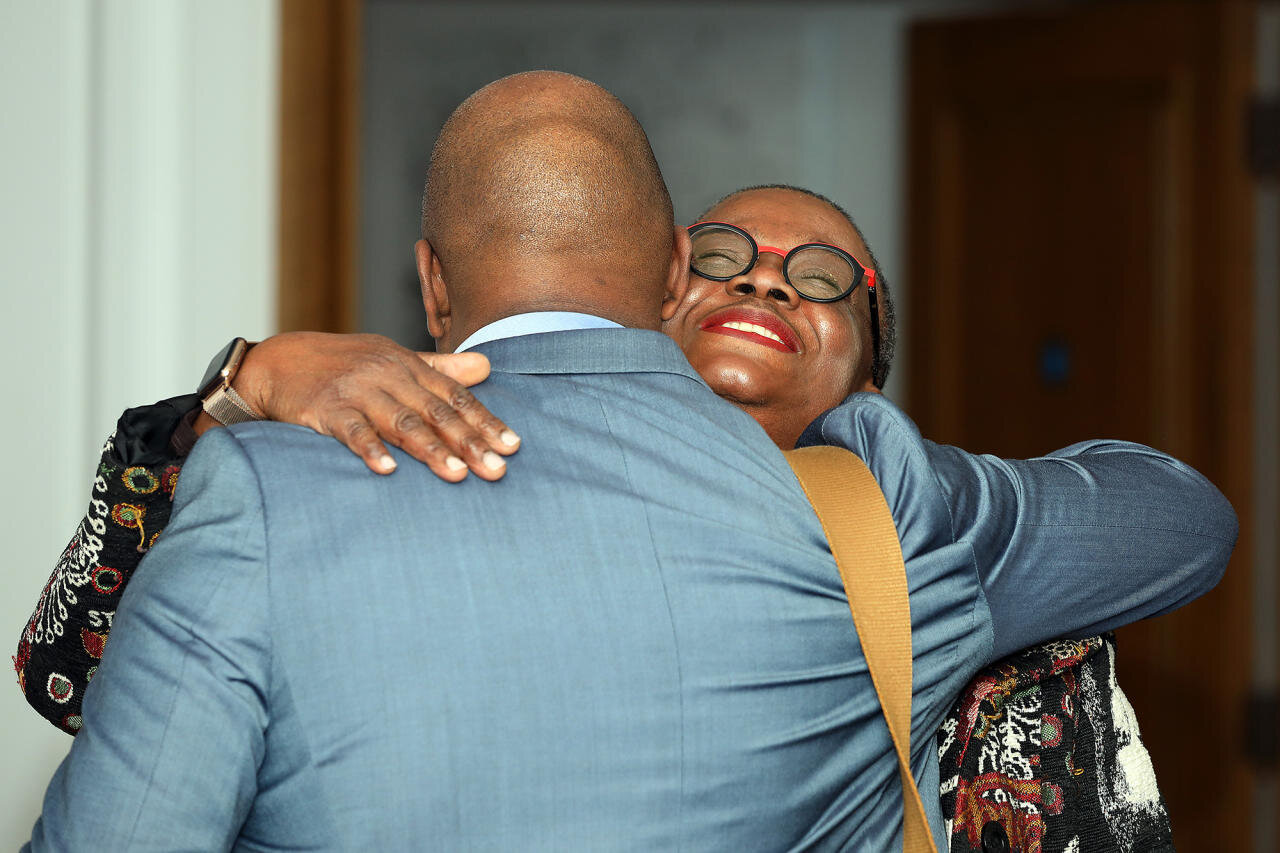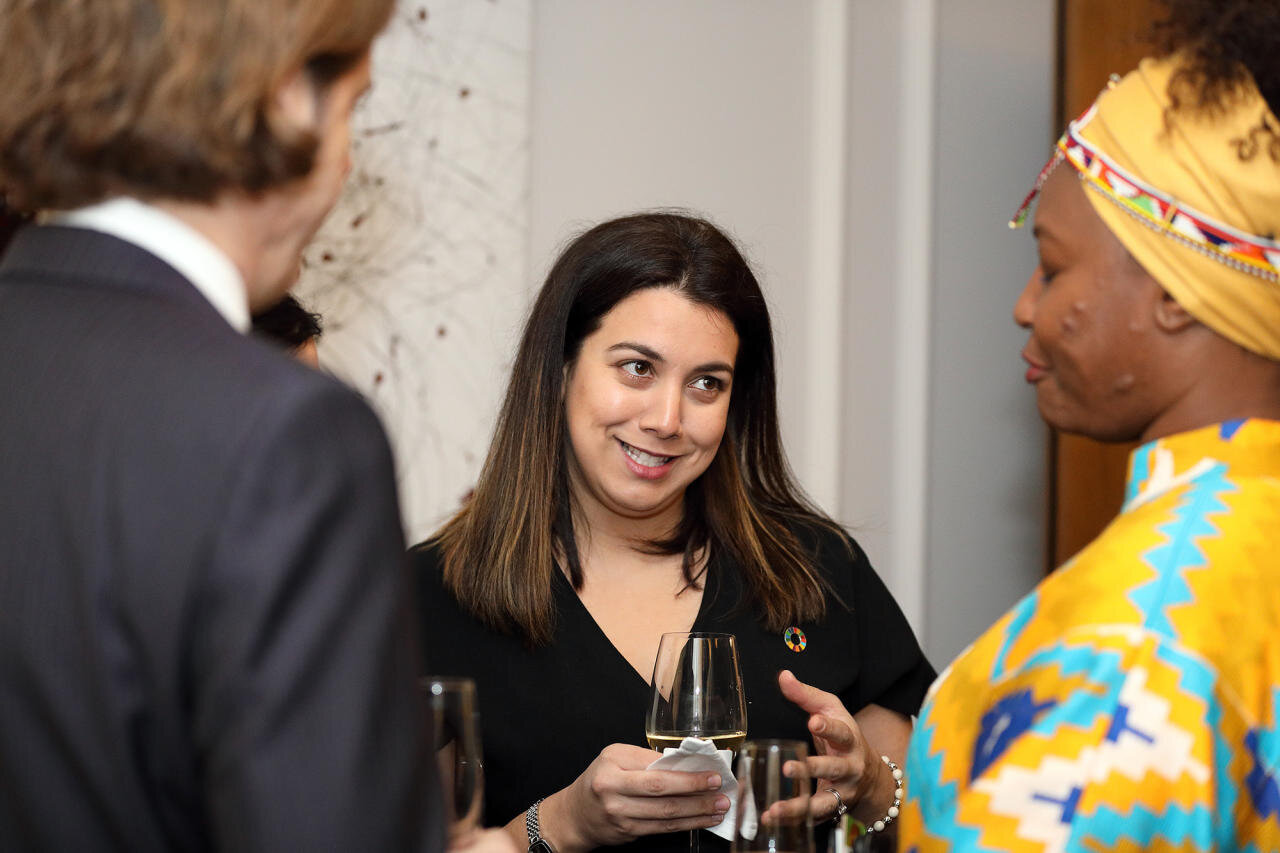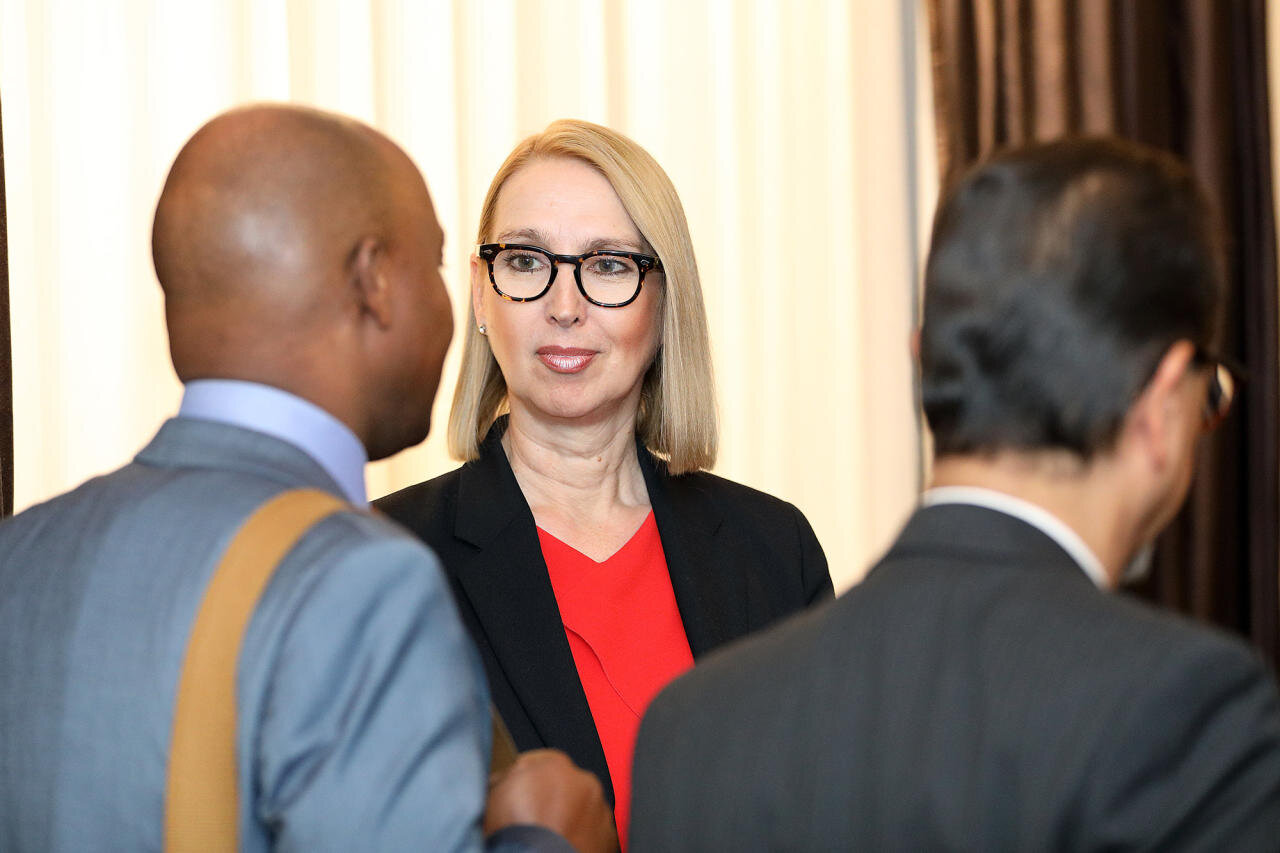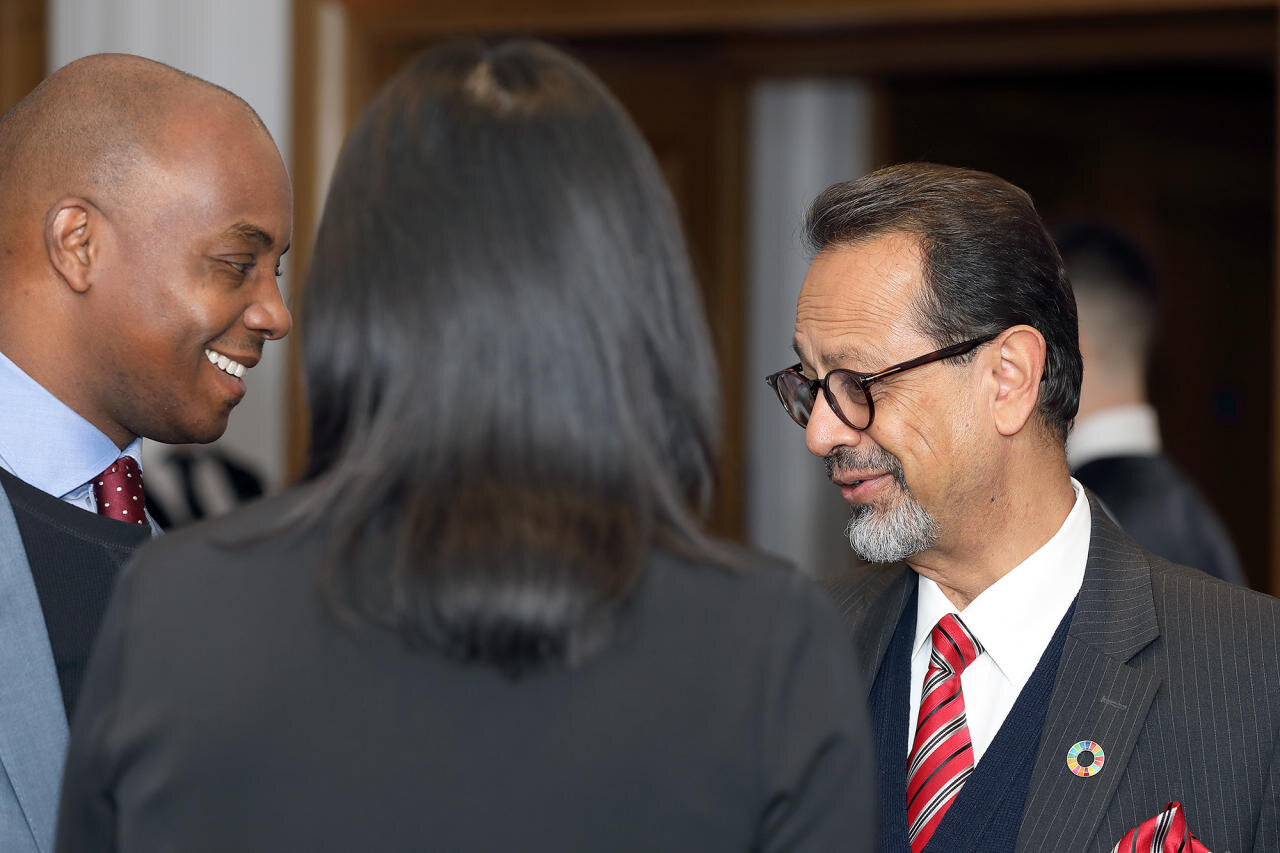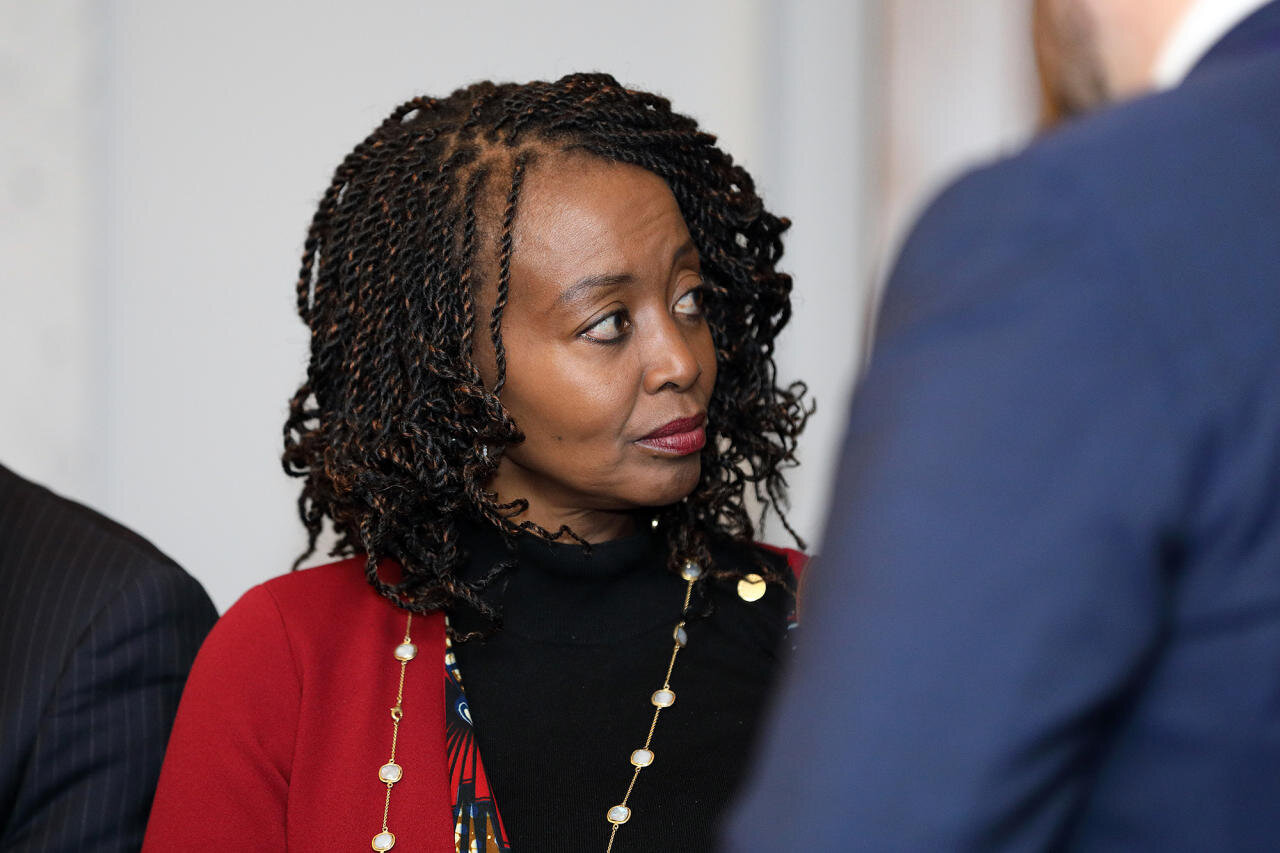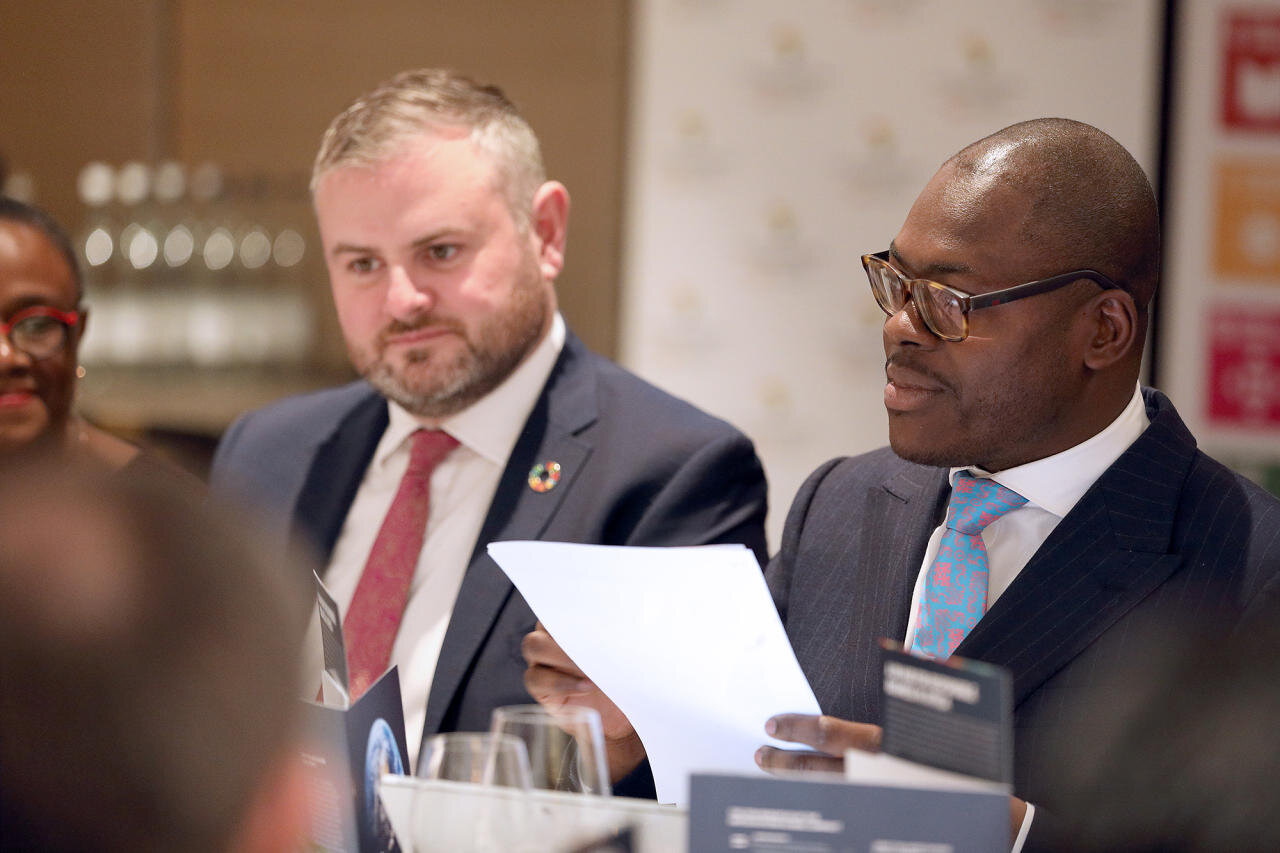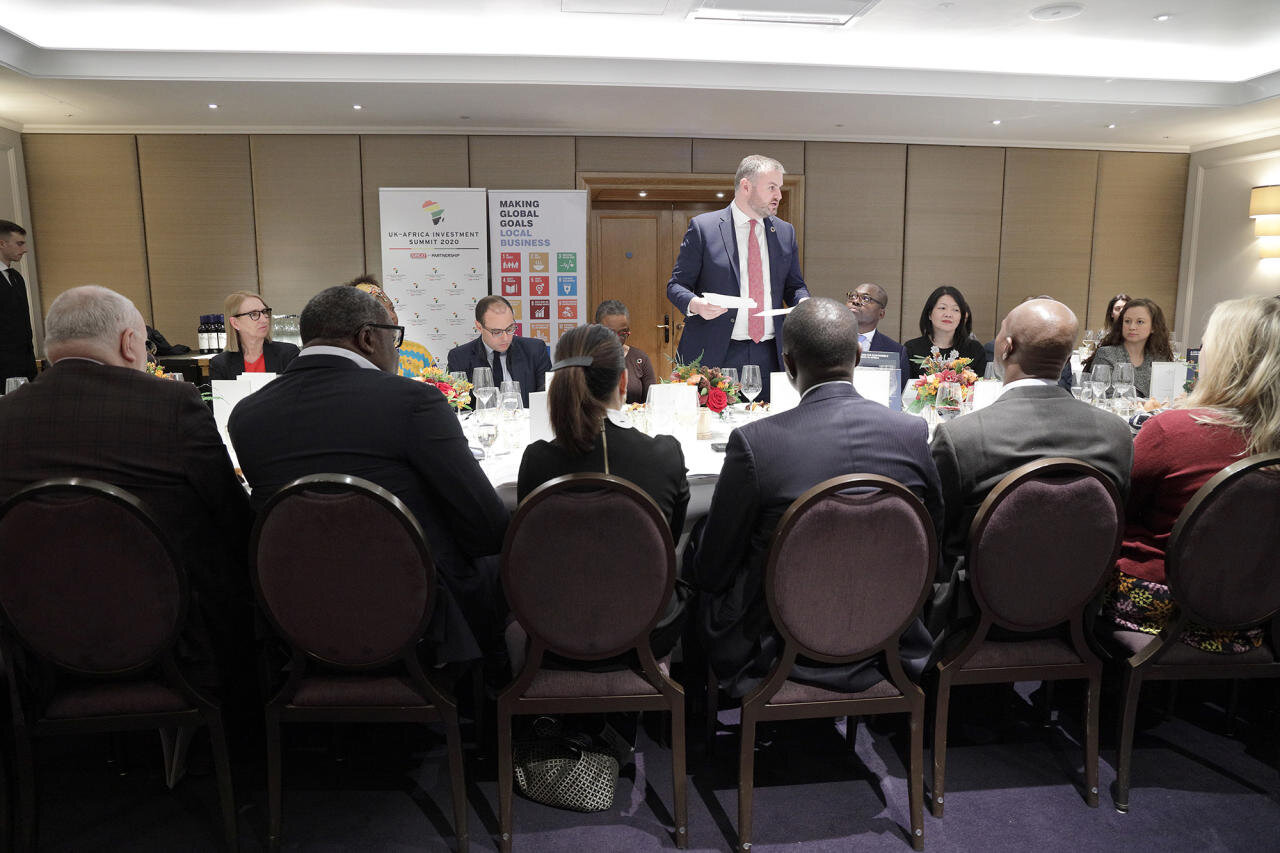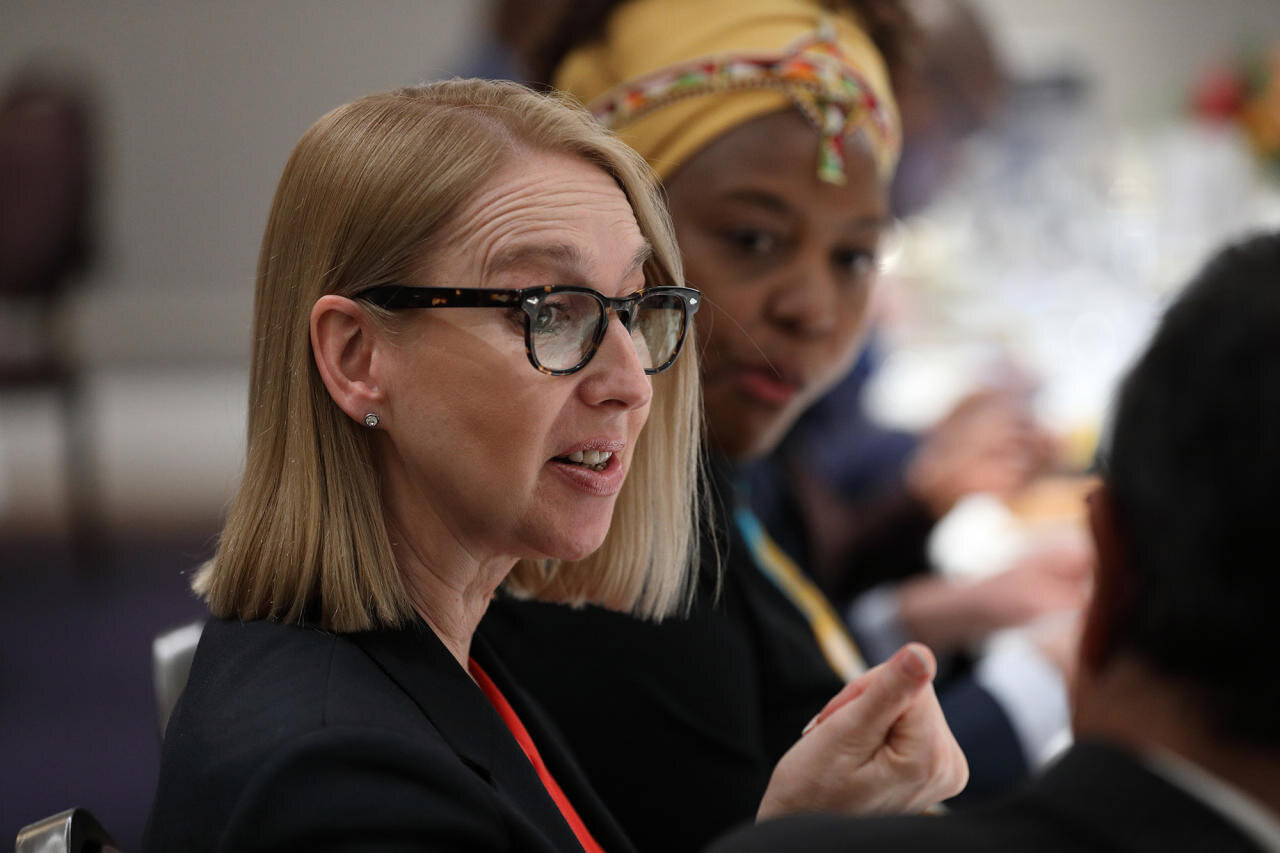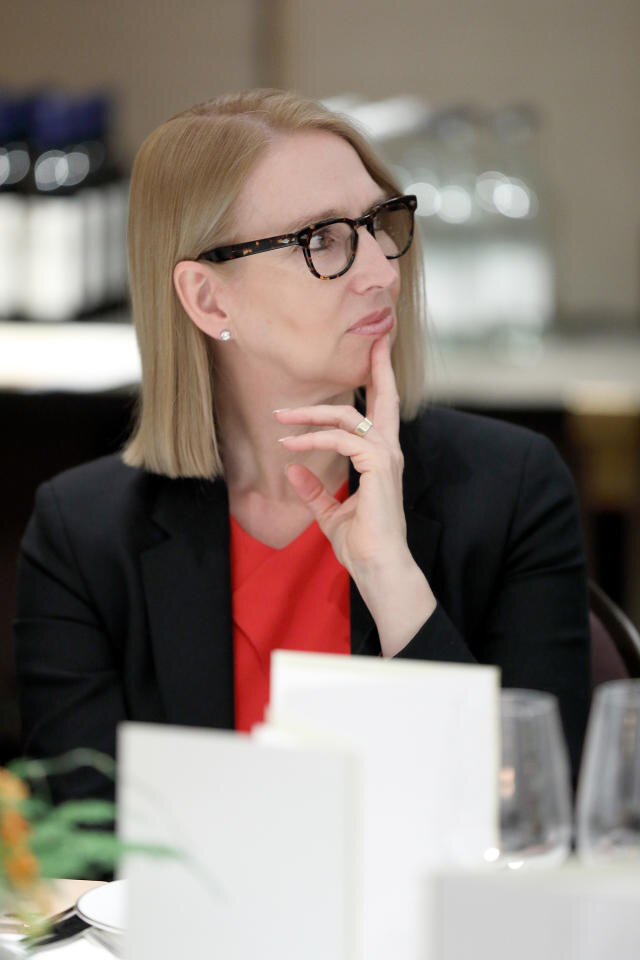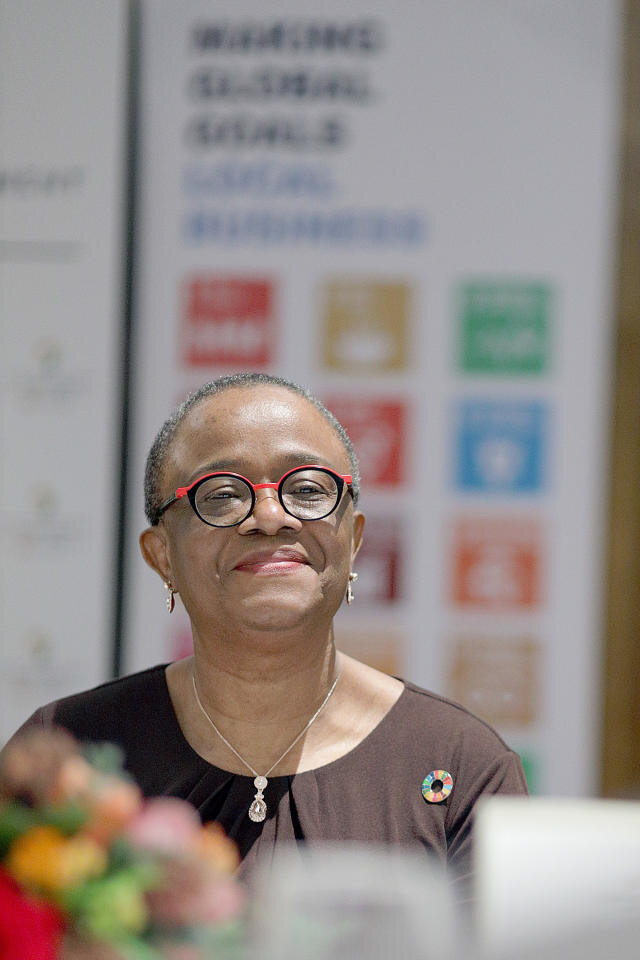Event Report
On 17 January, Lionesses of Africa Founder & CEO, Melanie Hawken, joined other senior business and government leaders at a High-Level SDG Investment Roundtable in London, hosted on the margins of the UK-Africa Investment Summit. The focus of the roundtable was to discuss how to unlock private investment across the African Continental Free Trade Area to realize Sustainable Development Goals.
The AfCFTA (African Continental Free Trade Agreement) will bring together 55 member states of the African Union in a single market of more than 1.2 billion people, with a combined GDP of more than US$ 3.4 trillion. When fully implemented, the AfCFTA will be the world’s largest free trade area since the formation of the WTO and will represent a historic milestone for the African continent’s development. In addition to increasing market efficiency and reducing the cost of doing business by offering opportunities for economies of scale, the AfCFTA could ease trade and investment flows, and at the same time, increase trade and foreign direct investment flows into Africa. Nonetheless, key challenges in the establishment of the free market remain, as Africa’s economies vary both in size and levels of economic development and openness.
Increasingly, there is a need for governments to work together with business, investors, entrepreneurs, the UN, civil society and other stakeholders, to create an enabling environment for attracting long-term sustainable investment and inclusive growth. The High-Level SDG Investment Roundtable brought together different role-players representing each of these important stakeholder groups to discuss how best to unlock much-needed private investment across the African Continental Free Trade Area to realize Sustainable Development Goals. The UN Global Compact Africa Hub, supported by the DFID RATE Programme provided the framework for the discussions. The Global Compact Local Networks in the Africa region will work with companies to translate a better understanding of a principles-based approach to business into concrete actions and policies and will address business and sustainability challenges. Over time, this will lead to the creation of more equitable and prosperous economies, improving both the quality of life and the business environment across the African continent.
The High-Level SDG Investment Roundtable was chaired by Mr David Okhumale, Managing Director of FTI Consulting, accompanied by 100 Lionesses network member, Ms Flora Mutahi, founder and CEO of Melvin Marsh International Limited, who is also a UN Global Compact Board Member. Flora gave the opening remarks and set the context for the discussions, before Mr Andrew Stephenson MP, the UK Minister of State for the Foreign and Commonwealth Office and the Department for International Development gave the government’s view on UK-Africa Cooperation. The discussion then turned to the topic of how to develop an effective AfCFTA Implementation Strategy for Africa’s Private Sector, with guest participants each contributing their thoughts and insights on how corporates, investors and financial institutions can unlock financing for the SDGs and announce new commitments relating to SDGs and AfCFTA aligned investment.
Other key invited speakers at the roundtable event were Mr Oscar Onyema, CEO of the Nigerian Stock Exchange; Dr Marcia Balisciano, Director of Corporate Responsibility RELX Group; Mr Christopher Kirigua, Executive Director and Regional Head Africa, Sustainable Finance Standard Chartered Bank; Ms Olajobi Makinwa, Chief Intergovernmental Relations and Africa UN Global Compact Member; Steve Kenzie, Executive Director Global Compact Network UK; and Ms Ciiru Waweru, CEO of Funkidz.
The event attendees continued the dialogue around the importance of leveraging the African continent’s responsible business and investment community’s expertise and regional footprint, which will be critical to translate the real market access opportunities for African companies into a sustainable and prosperous future for the continent.
Final closing remarks and thanks to all participants were given by Maame Boateng, Intergovernmental Relations and Africa, United Nations Global Compact, before the event was brought to a formal close with more networking and informal discussion.
